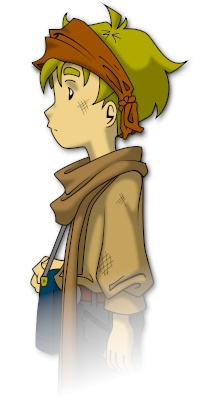Difference between revisions of "About"
(move some stuff from the website overview page to here) |
(replace normal links with template:L) |
||
| (23 intermediate revisions by 12 users not shown) | |||
| Line 1: | Line 1: | ||
| − | + | {{NewTerminology}} | |
| + | |||
| + | {{l|File:yk_prologue_172.jpg|left}} | ||
| + | |||
| + | '''Synfig is a powerful, industrial-strength vector-based 2D animation software package, designed from the ground-up for producing feature-film quality animation with fewer people and resources.''' | ||
| − | |||
'''While there are many other programs currently on the market to aid with the efficient production of 2D animation, we are currently unaware of any other software that can do what our software can.''' | '''While there are many other programs currently on the market to aid with the efficient production of 2D animation, we are currently unaware of any other software that can do what our software can.''' | ||
| Line 8: | Line 11: | ||
[http://en.wikipedia.org/wiki/Traditional_animation 2D Animation] has traditionally been very expensive because every frame must be drawn by hand. Even with today's digital inking and painting software, the process still relies on individuals hand-drawing each frame. This laborious task is called "[http://en.wikipedia.org/wiki/Tweening tweening]". | [http://en.wikipedia.org/wiki/Traditional_animation 2D Animation] has traditionally been very expensive because every frame must be drawn by hand. Even with today's digital inking and painting software, the process still relies on individuals hand-drawing each frame. This laborious task is called "[http://en.wikipedia.org/wiki/Tweening tweening]". | ||
| − | + | Synfig eliminates the task of manual tweening, producing smooth, fluid motion without the animator having to draw out each frame individually. This allows you to produce 2D animation with fewer people while producing art of a higher quality. | |
| − | + | You may be interested in the {{l|history}} or {{l|features}} of Synfig Studio. | |
== Quotes == | == Quotes == | ||
| − | |||
| − | |||
"that was the original idea from day one---the elimination of the tweening process. But it is certainly not the only feature of Synfig that makes it unique. In addition to eliminating the tweening process, I also wanted Synfig to be used for pretty much every part of production except story-boarding and editing." (OSNews, Robert Quattlebaum) [http://osnews.com/story.php?news_id=13241] | "that was the original idea from day one---the elimination of the tweening process. But it is certainly not the only feature of Synfig that makes it unique. In addition to eliminating the tweening process, I also wanted Synfig to be used for pretty much every part of production except story-boarding and editing." (OSNews, Robert Quattlebaum) [http://osnews.com/story.php?news_id=13241] | ||
Latest revision as of 13:47, 2 January 2015
Synfig is a powerful, industrial-strength vector-based 2D animation software package, designed from the ground-up for producing feature-film quality animation with fewer people and resources.
While there are many other programs currently on the market to aid with the efficient production of 2D animation, we are currently unaware of any other software that can do what our software can.
Background
2D Animation has traditionally been very expensive because every frame must be drawn by hand. Even with today's digital inking and painting software, the process still relies on individuals hand-drawing each frame. This laborious task is called "tweening".
Synfig eliminates the task of manual tweening, producing smooth, fluid motion without the animator having to draw out each frame individually. This allows you to produce 2D animation with fewer people while producing art of a higher quality.
You may be interested in the History or Features of Synfig Studio.
Quotes
"that was the original idea from day one---the elimination of the tweening process. But it is certainly not the only feature of Synfig that makes it unique. In addition to eliminating the tweening process, I also wanted Synfig to be used for pretty much every part of production except story-boarding and editing." (OSNews, Robert Quattlebaum) [1]
